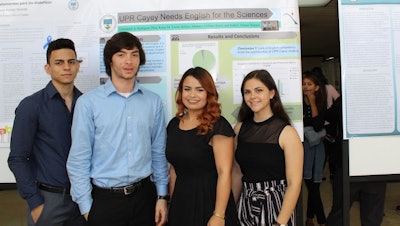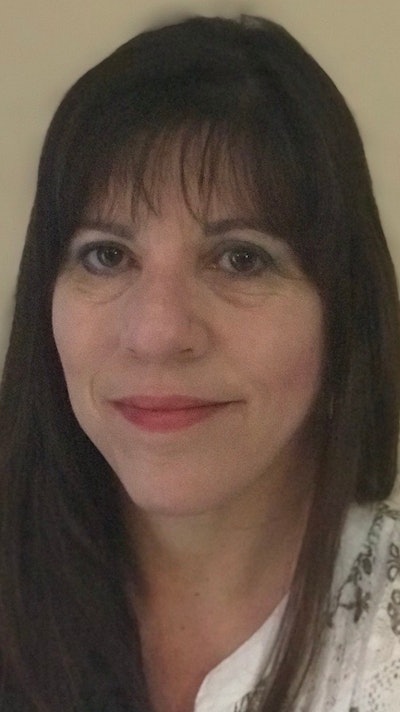 Students present their research on subjects important to them and their own communities.
Students present their research on subjects important to them and their own communities.
The Interdisciplinary Research Institute is a unit of the academic dean at the University of Puerto Rico at Cayey. It promotes research and academic creation through projects with a regional, interdisciplinary and applied approach. The goal is to generate knowledge of use to Puerto Rico, most specifically the 11 towns in the Cayey service region, as well as supporting research of the faculty and students.
“What we do is to support and create a research environment,” says Vionex Marti González, director of the Institute. “Maybe half of our projects are based on those problems of our communities but are common to Puerto Rico. This is usually a practical site for gathering information, and we also receive inquiries and comments from our communities. We choose to do that research in this service region.”
Faculty is supported by the strengthening of the research environment to engage them and their students. This support comes in different forms, such as training in methodologies and mentoring for publication and proposal development. There is also monetary support for equipment, materials, travel, advisors and time off to do the research. Projects have addressed pressing issues such as race, discrimination, inequalities, and health disparities.
“We have invested in policy development — policies and strategies to increase collaboration and to create a supportive environment for research,” says Marti González. “After 22 years, we have created a multi-prong, comprehensive model to sustain and engage faculty and students in valuable research for a non-research university.
“We know that advancing undergraduate research is defined as a high-impact practice to help attain goals for those students,” she adds.
Rodriguez emphasizes the importance of undergraduate research opportunities in student retention and graduation. Students were able to do their research on subjects of importance to them and have an impact in their own communities. Using an interdisciplinary approach means diverse perspectives and depth of the work.
 Vionex Marti González
Vionex Marti González
Marti González says many of the problems are complex and require interdisciplinary inquiry. Also, it’s reasonable to promote collaboration when funding for research is limited. While research in all areas is supported, there is a particular interest on the natural and human sciences.
“Right now, one third of our projects are from the social sciences, one third from the natural sciences and one third from other departments,” Marti González says.
Workshops, seminars, courses, and technical support are provided to train students in research skills and prepare them to pursue graduate studies. There are methodology and research programs and applications training as well as training on responsible conduct in research.
Each researcher and program have to present their outcomes, methodologies and strategies. That enables students to learn about all the dynamics of research.
“The most valuable thing is our interdisciplinary courses,” says Marti González. “Students enroll as research assistants to faculty-led projects. That is where the real mentoring and research education occurs because they have the opportunity to engage in a real research problem and question. They learn all the phases of what we do in research, and they also have the opportunity to publish alongside their mentors or publish by themselves.”
A student follow-up survey three months after graduation is conducted annually. Of students engaged in research through the Institute, 79% indicated they applied to graduate school and 19% indicated they have been accepted. Students also noted that research experiences influenced their decision to pursue graduate studies. In contrast, only 41% of the overall student body of University of Puerto Rico at Cayey noted they applied to graduate school.
Marti González says that sharing the Institute model can help similar institutions support a research environment for faculty and undergraduate students. Budgets have been slashed due to Puerto Rico’s bankruptcy and there have been hurricanes, earthquakes and then the pandemic.
“They can learn from our challenges, and our responses have been very creative,” she says. “Being here with these outcomes and being here for our students … is really very important to us.”















